Published
6 months agoon
By
Adubianews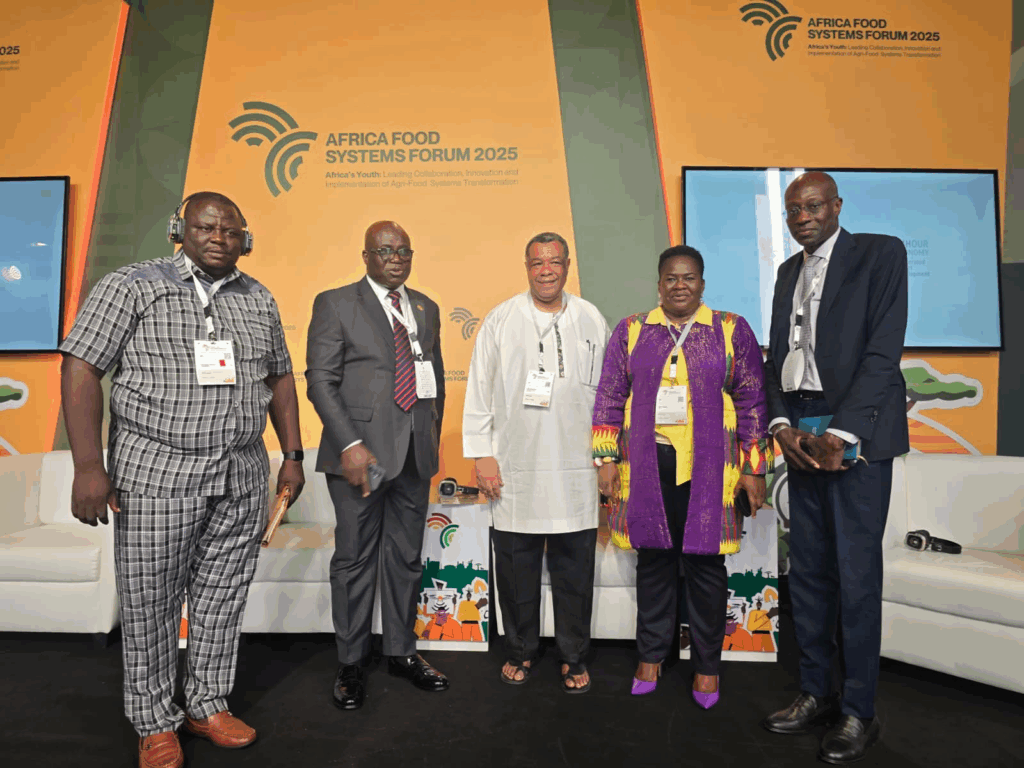
Ghana has unveiled wide-ranging agrifood investment opportunities to the international community, assuring potential investors that their ventures will generate mutual benefits for both the Ghanaian people and investors.
At the 2025 Africa Food Systems Forum (AFSF) in Dakar, Senegal, Minister for Food and Agriculture Eric Opoku and Presidential Advisor for 24-Hour Economy & Accelerated Export Development, Augustus Obuadum Goosie Tanoh, emphasized that Ghana is strategically positioned as a gateway to regional markets.
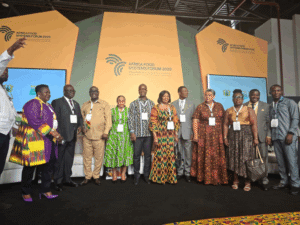
“Ghana is a place to invest in and go. We are approximately within the 425 million people in ECOWAS and 1.4 billion people under AfCFTA,” Mr. Tanoh stated. He stressed that Africa’s youthful population offers unmatched market potential.
Minister Opoku explained that the 24-Hour Economy will rely on factories running three shifts daily, requiring a surge in raw materials. “Huge opportunities exist in the production of raw materials to sustain factories under the 24-hour economy. That is why we are saying the opportunities exist,” he said.
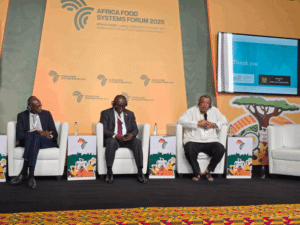
He called for investment across the value chain, production, storage, and processing, to reduce Ghana’s heavy import bill and empower local processors.
The government highlighted several priority areas during the “Ghana Deal Room” session, moderated by AGRA Ghana Country Director Dr. Betty Annan. Themed “Feeding Prosperity Through Smart Investments in Ghana”, the session spotlighted rice, soya, poultry, and vegetables as high-potential sectors.
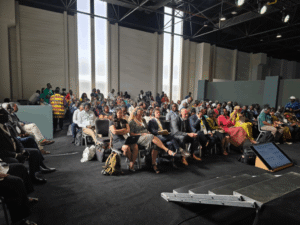
Rice: Ghana imports over $400 million worth annually, creating opportunities for large-scale mills supported by nucleus farms and outgrower schemes.
Soya: Rising demand for poultry and fish feed, as well as consumer foods, makes the soya value chain attractive.
Poultry: With another $400 million spent on imports, investors can explore feed production, hatcheries, broiler farms, processing plants, and packaging.
Paulina Addy of the Ministry of Food and Agriculture outlined the Feed Ghana Programme (FGP), aimed at boosting domestic production, cutting imports, and expanding exports. Its initiatives include crop and livestock development, farmers’ service centres for mechanisation and veterinary support, and farm banks to secure land and infrastructure for youth and women.
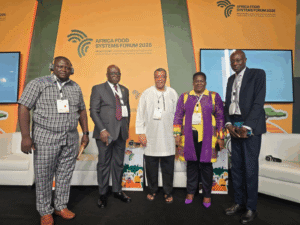
Head of Strategy for the 24-Hour Economy, Abdul-Nasser Alidu, introduced the Volta Economic Corridor, a flagship project blending agriculture with agro-industrial development. He explained that agroecological parks and industrial zones will drive food production, processing, and manufacturing for both local and export markets.
Investors can participate through equity investments in Special Purpose Vehicles (SPVs) as well as debt financing for SMEs, trade, and infrastructure.
Government officials, including Greater Accra Regional Minister Linda Ocloo, Dr. Godfred Seidu Jasaw, Alexander Roosevelt Hottordze, and Gizella Tetteh-Agbotui, joined the Deal Room discussions, underscoring Ghana’s commitment to attracting global agrifood investments.
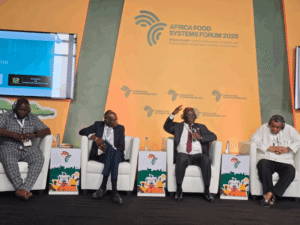
The 2025 AFSF, held under the theme “Africa’s Youth Leading Collaboration, Innovation, and Implementation of Agri-Food Systems Transformation”, has drawn over 6,000 participants from 113 countries, making it Africa’s premier platform for shaping the future of food systems.

























